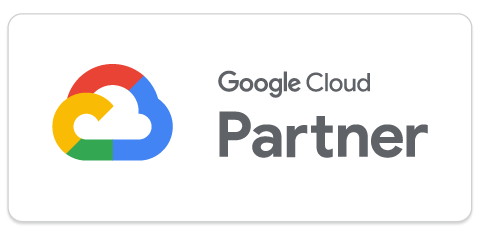AI for Small Business: How to Get Started Today
Unpacking the Real-World Benefits and How-To’s of AI for Your Business
In today’s rapidly evolving digital landscape, one term you’re likely hearing more and more is AI (Artificial Intelligence). But what exactly does it mean, and can it really apply to your small business? In simplest terms, AI is a branch of computer science that allows machines to mimic human intelligence. In other words, it gives machines the ability to learn, reason, and solve problems—tasks that we typically think of as requiring human brain power.
AI has the potential to drive remarkable growth and efficiency in businesses of all sizes, including small ones as well! It can automate repetitive tasks, provide valuable insights from data, personalize customer experiences, and much more, offering a unique competitive edge in an increasingly crowded marketplace.
One of the key players in the AI arena is Microsoft, a company that likely needs no introduction. Microsoft’s suite of AI solutions is robust, user-friendly, and designed to cater to a wide range of business needs. As a Microsoft partner, we can attest to the power of their AI technology and how it’s transforming businesses across the globe. Whether you’re looking to streamline your operations, enhance your customer service, or simply stay ahead of the curve, AI—and specifically, Microsoft’s AI offerings—present an exciting opportunity. This article will help you understand that opportunity and how you can seize it.
Understanding AI in a Business Context
When discussing AI in a business setting, it is important to recognize the specific applications that make this technology so valuable to companies of all sizes. For small businesses, in particular, certain aspects of AI are especially beneficial:
- Machine Learning: At its core, machine learning is a subset of AI where computer systems learn from data, identify patterns, and make decisions with minimal human intervention. In the context of a small business, machine learning might be utilized to analyze sales data and predict future trends. This could mean recognizing which products or services are most popular at certain times of year, helping you to better manage inventory and maximize sales.
- Natural Language Processing (NLP): This aspect of AI involves the interaction between computers and humans using natural language. The practical application for small businesses often comes in the form of customer service enhancements, like chatbots. These automated systems can handle customer inquiries around the clock, providing quick and convenient support for your customers while freeing up valuable time for your team to focus on other tasks.
Beyond these concepts, AI in a business context also encompasses data analytics, process automation, and personalization, among other applications. In each case, the goal is to streamline operations, make sense of vast amounts of data, and ultimately serve customers better.
AI’s Impact on Modern (Small) Business Operations
AI is more than just a buzzword—it’s a transformative force that’s reshaping the way businesses operate. For small businesses, the potential benefits of AI are substantial and can drive significant improvement across several areas:
- Increased Efficiency: By automating repetitive tasks, AI increases time optimization for your team to focus on more strategic, innovative opportunities. For example, AI can take over routine tasks like data entry, appointment scheduling, or customer query handling, enabling your staff to concentrate on areas that require a human touch.
- Enhanced Decision-making: With the ability to analyze vast amounts of data rapidly, AI can uncover insights that would be difficult for humans to detect. Whether it’s predicting sales trends, identifying inefficiencies in your operations, or spotting opportunities for growth, these insights can inform smarter, data-driven decisions.
- Personalized Customer Experience: AI can help you understand your customers better, leading to more personalized interactions. By analyzing customer data, AI can reveal patterns in buying behavior, preferences, and needs. This allows for tailored product recommendations, personalized marketing messages, and improved customer service, all of which can boost customer satisfaction and loyalty.
While these benefits can sound abstract, they come to life when we look at real-world examples. Consider a small e-commerce business that uses AI to recommend products to customers based on their browsing history. Or a local bakery that uses an AI-powered system to predict daily sales and manage inventory accordingly.
AI isn’t just for tech giants—it’s accessible and beneficial to small businesses across all sectors. Microsoft’s suite of AI solutions, in particular, has been instrumental in democratizing access to AI, providing user-friendly tools that small businesses can leverage to drive growth and competitive advantage.
Getting Started with AI: A Step-by-step Approach for Small Businesses
Whether you’re currently using cloud solutions or are yet to make that transition, implementing AI in your small business is a manageable process. Here’s a step-by-step guide tailored for both scenarios:
- Assess Your Business Needs: Start by identifying areas in your business that could benefit from AI. Look for tasks that are repetitive, prone to human error, or that consume a significant amount of time. Also, consider where data analysis might provide valuable insights, like sales trends or customer behavior.
If You’re Not on the Cloud:
- Explore On-Premise AI Solutions: There are AI tools available that can be installed directly on your company’s computers or servers. While these solutions may lack some of the scalability and flexibility of cloud-based AI, they can still provide significant efficiency gains.
- Transition to the Cloud: To fully leverage the power of AI, consider moving your operations to the cloud. Cloud platforms like Microsoft Azure offer robust AI solutions that are scalable, flexible, and constantly updated with the latest advancements.
If You’re on the Cloud (Using Azure as an example):
- Leverage Azure’s AI Capabilities: Microsoft Azure offers a suite of AI tools designed to cater to different business needs. This includes Azure Bot Service for creating conversational chatbots, Azure Machine Learning for building predictive models, and Azure Cognitive Services for incorporating vision, speech, and language capabilities into applications, among others.
Regardless of where you are in your cloud journey:
- Implement Your Chosen AI Solution: This stage may involve integrating the AI tool into your existing systems, configuring the tool to suit your business processes, and training your team to use it. Even if you’re not tech-savvy, many AI tools are designed to be user-friendly and accessible.
- Monitor and Adjust: Once your AI solution is in place, you’ll need to regularly evaluate its effectiveness. Is it delivering the improvements you expected? Are there any tweaks needed to better fit your operations? Implementing AI is an ongoing process that requires adaptation and fine-tuning.
Embracing AI can unlock significant benefits for your small business. Whether you’re already on the cloud or just starting your digital transformation journey, there are AI solutions available to suit your needs and enhance your operations.
Addressing Concerns About AI Adoption
As with any significant change, adopting AI in your small business may raise some questions and concerns. Let’s address some of the most common ones:
- Is AI Too Complex for Small Businesses? It’s a common misconception that AI is only for tech giants or businesses with vast resources. While AI is indeed a complex field, many providers, like Microsoft, have made significant strides in making AI accessible and user-friendly. Whether it’s through intuitive tools or comprehensive support, these providers are committed to helping businesses of all sizes harness the power of AI.
- Will AI Replace Human Jobs? AI is designed to enhance human capabilities, not replace them. It’s most effective when handling repetitive tasks or analyzing large volumes of data—tasks that can be time-consuming and error-prone for humans. By taking over these tasks, AI frees up your team to focus on more strategic, creative, and interpersonal aspects of your business.
- Is AI Too Expensive? AI adoption does require an investment, but it’s not necessarily prohibitive for small businesses. Many cloud-based AI solutions offer scalable pricing models, meaning you only pay for what you need and use. Moreover, the efficiencies and insights gained from AI can lead to cost savings and revenue growth in the long run.
- Are There Security and Privacy Concerns? With any technology handling sensitive business and customer data, security is a valid concern. Reputable AI providers take this issue seriously and invest heavily in securing their systems. For example, Microsoft Azure has robust security measures in place and is compliant with a broad set of international and industry-specific standards.
AI adoption can be a big step, but it’s one that comes with considerable benefits. With the right understanding and approach, AI can drive efficiency, innovation, and growth in your small business.
The Future of AI for Small Businesses
As we look towards the future, one thing is clear: AI is here to stay. Its transformative potential continues to grow, and its applications are expanding across industries and business sizes. Here’s what the future could hold for small businesses leveraging AI:
- Enhanced Personalization: As AI continues to evolve, it’s expected to drive even greater personalization in business. Whether it’s product recommendations tailored to individual customers, personalized marketing campaigns, or AI-powered customer service that anticipates customer needs, personalization is the next frontier in business—and AI is the vehicle to get there.
- More Sophisticated Data Analysis: AI’s ability to analyze data will become even more advanced. From predictive analytics that forecast future trends to sentiment analysis that gauges customer attitudes, businesses will gain access to deeper and more nuanced insights. This will enable smarter decision-making and a better understanding of customers and markets.
- Expanded Accessibility: AI technology will become even more accessible and user-friendly. This means even the smallest businesses will be able to take advantage of AI tools without needing extensive technical expertise or resources. Tools like Microsoft Azure will continue to play a crucial role in this democratization of AI.
- Increased Integration: As more businesses adopt AI, we can expect increased integration of AI capabilities across different business tools and platforms. This means AI won’t just be an add-on—it will be woven into the fabric of business operations, enhancing everything from project management to customer engagement.
AI is more than just a technology trend—it’s a tool that’s reshaping the business landscape. For small businesses, it offers a path to increased efficiency, deeper customer relationships, and sustained growth. As we move into this future, the question isn’t if small businesses will adopt AI—it’s when and how they will make the most of its potential.
Wrapping Up
In an ever-evolving digital landscape, the power of AI offers promising opportunities for small businesses. By increasing efficiency, enhancing decision-making, improving customer experience, and providing access to sophisticated data analysis, AI is not just a tool for large corporations. It’s a transformative technology that can bring about substantial growth and competitive advantage for businesses of all sizes.
While adopting AI may seem daunting, the journey can be manageable and rewarding. Whether you’re already leveraging cloud solutions or just beginning your digital transformation, there’s an AI solution designed to meet your business’s unique needs.
If you’re intrigued by the possibilities AI presents for your small business, now is the time to explore these opportunities. Remember, the goal isn’t to adopt AI for its own sake—it’s about identifying how this powerful technology can address your specific business challenges and goals.
As a Google partner, we’re here to help you navigate this journey. We understand the complexities of AI, and we’re committed to making its transformative potential accessible to all our clients. Whether you need advice on getting started with AI, assistance in choosing the right AI solution, or guidance on implementing AI tools, our team of experts is ready to help.




